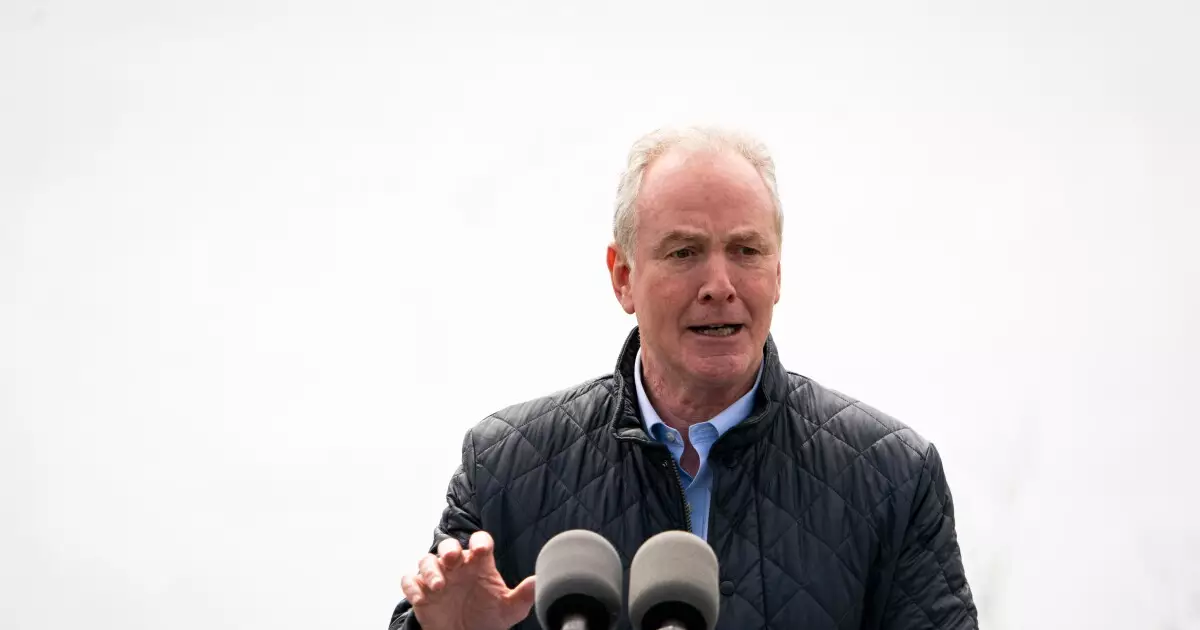Capitol Hill’s Recent Developments: A Mixed Bag for Government, Infrastructure, and The Debt Ceiling

The tumultuous political landscape of Capitol Hill witnessed a significant yet complex week as Congress navigated through pressing issues, culminating in a Continuing Resolution (CR) that will keep the government operational until March 14. However, the ongoing debate regarding the debt ceiling looms large, casting a shadow over the achievements made by Maryland and Washington D.C. in securing vital funding and support for local initiatives.
The past week’s most prominent victory came for Maryland with the announcement that federal funding for the Key Bridge replacement project has been fully secured. Senator Chris Van Hollen heralded this achievement as a significant step forward after the bridge suffered severe damage when a cargo ship collided with it in March 2024. While this funding provides a much-needed lifeline for state infrastructure, it has not been without controversy. The use of federal taxpayer dollars for a toll bridge repair sparked debates earlier this year, given Maryland’s commitment to repay the federal government subsequent to resolving legal disputes and insurance claims. This situation underscores the ongoing tension between federal and state interests, particularly when it comes to budget allocations and the perceived responsibilities of local governments.
Washington D.C. also achieved notable victories intertwined with the approval of the CR. One key element retained was the transfer of the 174-acre RFK Stadium site from federal oversight to the local government. Congresswoman Eleanor Holmes Norton celebrated this outcome as a triumph for D.C.’s self-determination, particularly as lawmakers prepare for the forthcoming holiday season. Furthermore, the CR also secured a $90 million fund allocated for the upcoming inauguration in January. The coordinated effort by the city’s mayor, CFO, and City Council in advocating for this funding before Congress showcases a unified front in asserting D.C.’s unique needs on a national platform.
While these wins provide immediate relief and resources, they serve as a reminder of the delicate balance of political power and fiscal responsibility, especially as the new administration takes shape.
In stark contrast to the progress made for Maryland and D.C., the discourse surrounding the debt ceiling presents a convoluted and unstable political battleground. Former President Trump has staked a claim that any CR must address the debt ceiling conditions, unleashing a wave of pushback from congressional Republicans. His insistence on addressing these financial limits signifies the rising tension within the party and raises eyebrows concerning their fiscal strategies going forward. This conflict not only pits factions of the Republican Party against one another but also raises questions about the overall economic stability that hinges on the debt ceiling negotiations in the coming months.
As the deadline for further action on the debt ceiling draws closer, the stakes are high. The potential repercussions could spark turmoil in the Treasury bond market and create broader economic uncertainty, risking both public confidence and international investor relations.
The 119th Congress is tasked with several challenging discussions ahead, with the Tax Cuts and Jobs Act (TCJA) at the forefront. This landmark legislation, which has been a pivotal point of contention, eliminated advance refunding for tax-exempt bonds and imposed caps on the deduction for state and local taxes. Maintaining the current tax frameworks will be a top priority for the House Ways and Means Committee, as outlined by Chairman Jason Smith. His assertion that extending the provisions of the TCJA is critical reveals underlying tensions regarding fiscal policy strategy and the constant tussle between sustaining economic momentum versus addressing fiscal responsibilities.
As Congress grapples with these issues, the upcoming months will undoubtedly test the mettle of lawmakers and the political dynamics within both parties. With significant infrastructure needs, ongoing battles for local autonomy, and precarious economic negotiations, the trajectory of Washington’s future hinges on the willingness to collaborate amidst a backdrop of division. Moving ahead, stakeholders from all sides must engage in constructive dialogues to foster a working relationship that transcends party lines, aiming for solutions that serve both immediate needs and long-term stability.





